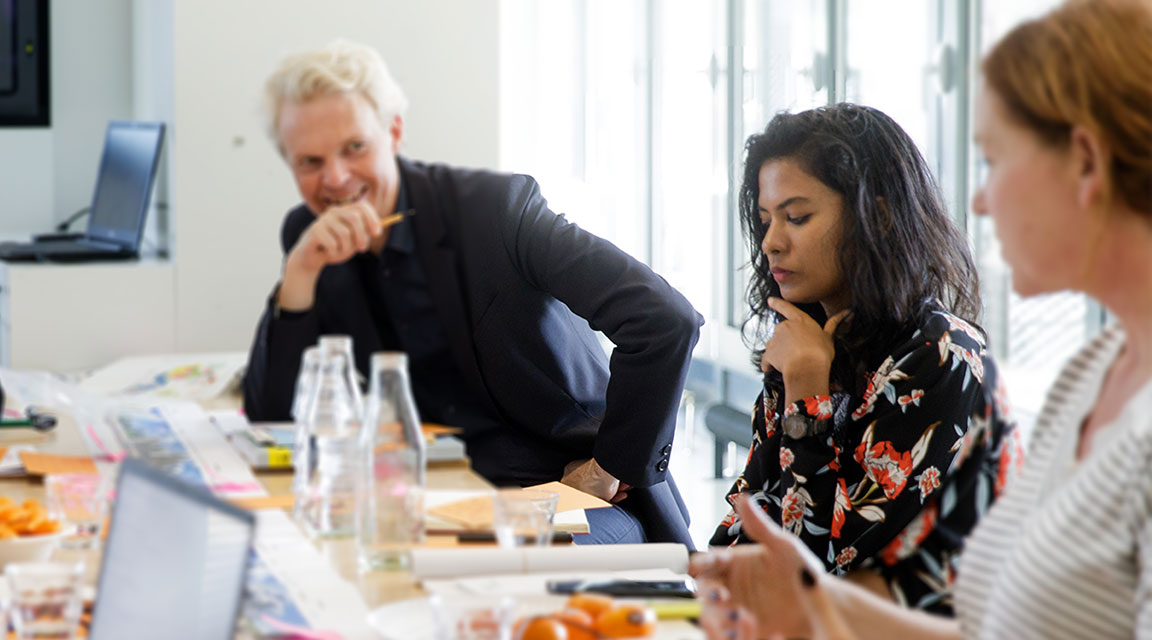The New Planner for the New Planning movement
Reflection by Selina Abraham
06 maart 2020
This is a reflection by Selina Abraham of Urban Empact, on the two-day international conference, 'Take on the Future' held on the 10th and 11th of December in Rotterdam and Den Haag, The Netherlands. This article summarises the findings from the various workshops and lectures during the conference, written on invitation from Vereniging Deltametropool. The views are personal.
Read the whole article through this link. Some selected text from the article below.
After one-and-a-half days of intense deliberation and discussion, not to mention the weeks of preparation that preceded the conference, Dutch-American journalist Tracy Metz best summarized it when she said that the New Planning is a “movement” in our profession. It comes at a time where the field of planning is transitioning from a pre-envisioned end product to a process. The discussion and dialogue generated from the ‘Take on the future- Critically Reflecting on Planning Visions’ conference offers a partial blueprint for the NOVI and the New Planning agenda as it establishes itself as guide for the planning profession in the Netherlands. This is a reflection piece asking a series of questions as food for thought.
The NOVI and New Planning Movement
The NOVI is not entirely complete. Yet. This statement is from various echoes in different planning sessions at the ‘Take on the Future’ conference. But in the beauty of incompleteness lies opportunities for the New Planning movement is an opportunity to fill in the blanks.
So what are the next steps that follow? How can the new planning movement take on this task of filling in the blanks.
In statement 3, the new planning agenda calls for actor oriented, inclusive approaches to “take back control together”. To make the most of this can we look to existing experts on participatory processes and learn from them better make flexible systems and tools that can be adopted by different agencies. Can they also be invited to fill in the elements missing from planning education regarding participatory sciences.
In statement 4, the new planning agenda calls for a deliberative democratic model where the planner acts as mediator. Are these skills planner feel confident in? Can external advisors who are skilled at moderating in other fields like debates, or talks be invited to help planners negotiate, link and summarise complexities in the built environment to relevant stakeholders.
The NOVI does not full acknowledge the unpredictability ahead with the climate urgency and environment that is the writing on the wall. However, the new planning agenda talks about in statement 6 where it urges the values of adaptability and flexibility. For instance the Panorama Netherlands is a spatial representation project that shows how the Netherlands can change in the future, can it also show multiple scenarios that can depict alternate futures? This need not be the job of planners and experts of the built environment alone. It is an opportunity to invite other fields, other stakeholders, start-ups, artists who can illustrate an alternate understanding of our future. This also reiterates the call of statement 9 to develop means of expression so that everyone understands the urgencies and not just planners.
In statement 2, there is a call for the shared urgencies to convince active participants or users to create a common agenda for shared agencies. The NOVI has already triggered cross-sectoral collaboration, with the help of methods like value-driven approaches to find common ground. A value-based model substantiated by data-sets can help decision makers prioritise actions and contemplate consequences.
The New Planning agenda also comes with much needed examples or the ‘seducing practices’ that members of the conference discussed. But can there be more in-depth understanding of what enabled and hindered the success of these projects?
These are a few questions that need to be answered and steps that need to be taken for us to move ahead along with this new movement. But who are the right institutions/ sectors/ experts who can answer these questions?
About the Author
Selina Abraham is an urbanist and founder of the startup Urban Empact. She is working on designing negotiation and participatory toolkits to help urbanists design more inclusive cities. She graduated at TU Delft with a thesis project that focused on negotiating conflicting urban and rural values in the context of Indian cities. It was shortlisted for the National Master Thesis Award 2018 at IIAS Leiden.
